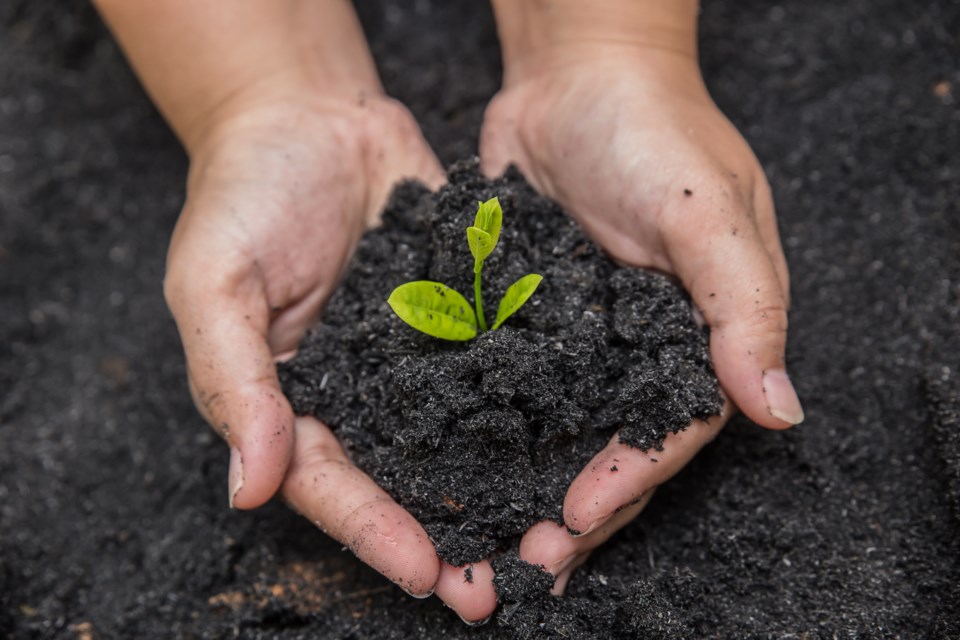A Canada Research Chair Tier II in Indigenous History, Healing, and Reconciliation at Algoma University has received a prestigious grant as part of the Ontario Agri-Food Research Initiative, the university says.
The project by Dr. Paulette Steeves (Cree-Métis), a professor in geography, geology and land stewardship, will explore the potential of nutrient-rich soil developed by Indigenous Amazonian communities to enhance horticultural productivity in northern Ontario.
“This project is an exciting opportunity to bring together Indigenous knowledge and modern science to create lasting impacts on soil health and agricultural practices in Northern Ontario,” said Dr. Steeves.
You can read more about the project in the following news release from Algoma U:
Algoma University is proud to announce that Dr. Paulette Steeves (Cree-Métis), a professor in geography, geology and land stewardship and a Canada Research Chair Tier II in Indigenous History, Healing, and Reconciliation, has received a prestigious grant as part of the Ontario Agri-Food Research Initiative.
The project, Enhancing Northern Horticulture through Terra Preta and Indigenous Wisdom for Sustainable Soil Health in Northern Ontario, represents a groundbreaking collaboration between Algoma University, the Food Bank Farm, Niigaaniin, and the Rural Agri-Innovation Network (RAIN).
This innovative research project will explore the potential of Terra Preta, a nutrient-rich soil developed by Indigenous Amazonian communities, to enhance horticultural productivity in Northern Ontario. The collaboration will combine Indigenous Traditional Ecological Knowledge with modern scientific methods, aiming to create sustainable agricultural practices that can be applied in local communities.
Dr. Steeves, an archaeologist who also recently had her Canada Research Chair Tier II renewed for 2024-2029, emphasized the importance of blending Indigenous wisdom with contemporary science in addressing today’s environmental challenges.
“This project is an exciting opportunity to bring together Indigenous knowledge and modern science to create lasting impacts on soil health and agricultural practices in Northern Ontario,” said Dr. Steeves. “By respecting and integrating traditional ecological knowledge, we can cultivate a more sustainable future, not just for food security but for environmental health and community well-being. I’m incredibly grateful for the support from our partners and excited to see the positive change this project will bring.”
The project partners, including Colin Templeton from the Food Bank Farm, Erik Bringleson from Niigaaniin, and co-principal investigator David Thompson from RAIN, are committed to engaging the local community and applying the research findings to support sustainable farming practices in Northern Ontario. The collaboration will provide valuable insights into the use of Terra Preta soil amendments and offer actionable recommendations for improving soil health in the region.
"This project combines Indigenous knowledge with modern science to improve soil health and support sustainable horticulture in Northern Ontario,” shared RAIN director David Thompson. “It’s a vital step toward strengthening local food systems and ensuring long-term food security."
The Social Sciences and Humanities Research Council (SSHRC) made funding for Dr. Steeves’ Canada Research Chair renewal possible. As the federal research funding agency dedicated to promoting and supporting research and training in the humanities and social sciences, SSHRC has played a vital role in advancing innovative projects like this one, which focuses on fostering reconciliation, sustainability, and meaningful community impact.
Enhancing Northern Horticulture through Terra Preta and Indigenous Wisdom for Sustainable Soil Health in Northern Ontario Overview is partially funded by the Governments of Canada and Ontario under the Sustainable Canadian Agricultural Partnership (Sustainable Cap), a five-year federal-provincial-territorial initiative.
Algoma University’s leadership in fostering innovative and community-focused research continues to grow with projects like these, advancing the University's mission of reconciliation, education, and sustainability.
